All Stories
-
 Health & Medicine
Health & MedicineIsaac Kinde: Finding cancer via altered genes
Isaac Kinde helped create a technology that can spot cancers early to give patients a better chance at survival.
-
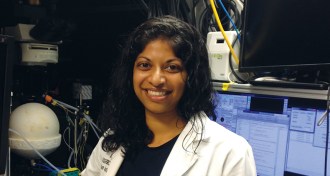 Neuroscience
NeurosciencePriya Rajasethupathy: Memories mark DNA
Neuroscientist Priya Rajasethupathy has discovered a tiny molecule that may turn off part of the genome to help the brain store long-term memories.
By Erin Wayman -
 Neuroscience
NeuroscienceSteve Ramirez: Erasing fear memories
Neuroscientist Steve Ramirez is manipulating memories in mice to one day erase fearful memories of PTSD.
-
 Chemistry
ChemistrySarah Reisman: Better synthesis of natural compounds
Chemist Sarah Reisman is trying to find new ways to build complicated chemical compounds found in nature.
-
 Neuroscience
NeuroscienceYasser Roudi: Creating maps in the brain
Physicist Yasser Roudi does the math on how the brain and other complex systems process information.
By Susan Gaidos -
 Quantum Physics
Quantum PhysicsShinsei Ryu: Error-free quantum calculations
Physicist Shinsei Ryu navigates the confusing border between the quantum and everyday realms.
-
 Life
LifeGia Voeltz: Redrawing the cell’s floor plan
Cell biologist Gia Voeltz has changed our view of the endoplasmic reticulum.
By Meghan Rosen -
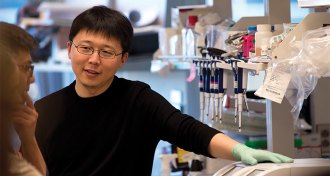 Genetics
GeneticsFeng Zhang: Editing DNA
Scientist Feng Zhang has developed a system to easily and precisely edit genomes.
By Susan Gaidos -
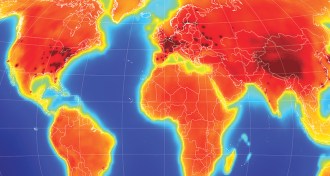 Particle Physics
Particle PhysicsMap captures Earth’s antineutrino glow
Tiny subatomic particles called antineutrinos stream away from Earth at different concentrations across the globe, a new map illustrates.
By Meghan Rosen -
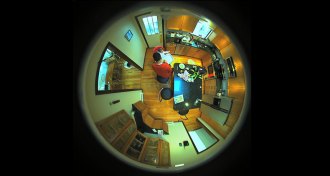 Health & Medicine
Health & MedicineFor kids learning new words, it’s all about context
By recording the first three years of life, researchers get hints about a child’s language development.
-
 Climate
ClimateHurricane reports ignore indirect deaths
Nearly half of all hurricane and tropical storm fatalities are indirect, yet they typically aren’t included in official storm reports.
-
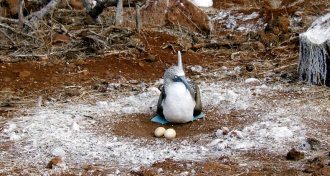 Animals
AnimalsBlue-footed boobies dirty their eggs to hide them from predators
Blue-footed boobies lay bright white eggs on the ground. Dirtying the eggs camouflages them against gulls, a new study finds.